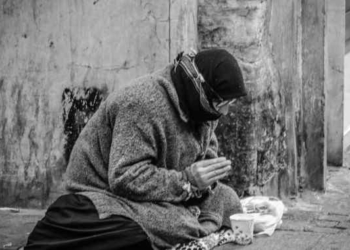The realm of the Internet is a lot like the physical world. With technology now being an integral part of life instead of an addendum or a luxury, a digital space can act just like a neighbourhood or a town.
Just like how people can send a letter to your house, you can actually determine someone’s identity over the Internet through their IP address. You can even Google “IP address” right now and you’ll be told yours by Google itself.
Simply defined, the IP (Internet Protocol) address is a number that is put on a machine any time it connects to the Internet. This means your IP address isn’t really connected to you (like an ID card) but is assigned to your device.
Essentially, an IP address is identification, but what does this achieve?
Well, it isn’t just for display – the physical location of any IP address is determinable, connecting it to your actual home, for example. Combined with other research, a whole identity profile can form. Names, social media accounts, activity, et cetera.
As you can guess, this can be of concern and worry to many (perhaps even yourself).
Can anyone see my IP address?
In a word, yes. There are services (free and paid-for, depending on the level of accuracy and quality of information needed) that can track the IP address of someone you’re chatting with, or from an email you sent, et cetera.
People who need to hide their IP address, for reasons ranging from security to anonymity, use a VPN (Virtual Private Network). A VPN will basically assign you a different IP, even one from a country of your choice.
VPNs have different levels of functionality. Take this Opera VPN review at vpnpro.com, for example; a quick glance can help you see its pros and cons. Like this, you can determine which one ticks the right boxes for you.
Your ISP (Internet Service Provider) is legally obliged to provide IP information if it is otherwise harder to pin down. In many countries, like France, ISPs even proactively monitor and report activity on their servers.
If using a torrent website has been banned in your country, for example, you can receive a notice at your literal doorstep. Unless, of course, you use a VPN.
What does it look like?
There are two types of IPs currently in common use – IPv4 and IPv6.
To demonstrate, an IP4 address is formatted as 430.253.18.315. Others would go 3DBC:F429:3489::93. The difference between them is of bytes of information; 32-bit vs. 128-bit.
The components of an IP address
As you might’ve been able to pick up on, your IP address essentially connects you to what server you’re getting your Internet from. Just like phones have cell towers, every region has an internet service provider.
The IP address can tell us about both you and the network you’re on. Without being too technical, the first part will inform you of the network, and the second part of the host computer attached to the network.
We gave you the example of a letter at the start of the article. This is because the IP address is what makes your Internet connection possible, by alerting systems where to send data. A computer will use what is called a DNS server to reach a hostname, leading to its IP address.
The difference between IPv4 and IPv6
When the Internet didn’t use to be as widespread as it is today (55% of the world’s population is currently online), perhaps one computer per home might connect to the Internet, at most. There was no real concept of public networks. No mobile phones with Internet availability.
Under the IPv4 system, there were 232 possible combinations; the permutation of which gives us 4.3 billion unique addresses. More than enough for, say, a year like 2004.
With the advent of smartphones, smart TVs and even smart refrigerators, there are now multiple connections in a single location. The IPv4 system became outdated very quickly, and a cause for panic emerged.
The currently-implemented IPv6, with 128 bits instead of just 32, increased that number almost tenfold, to 2128 possible addresses.
This translates to 340 trillion possible IP addresses at any given time. You could connect a thousand devices to the Internet if you wanted to, and everyone else in the world could do the same, and we still wouldn’t run out of possible combinations.
Why hide your IP?
Finally, it is important to discuss the need some might feel the need to hide their IP address.
We have established how an IP address can connect your activity to your ‘real life’. There have, however, also been cases of mistaken identity with shared IP addresses, just as with other forms of identification.
The current state of mass surveillance in many countries is also a cause of the alarm, with free speech being impeded upon. Governments can track voices of dissent via their online activity to their actual homes, with journalists being silenced in many dictatorships.
Lastly, and perhaps more commonly; websites are getting more and more ‘trigger-happy’ with geo-blocking. Using your IP address to determine your country, services such as YouTube or Netflix might restrict your options. The changing of IPs through a VPN software bypasses these limitations.












![Everything You Ever Wanted to Know About 9/11 Conspiracy Theory in Under 5 Minutes [VIDEO] | by James Corbett](https://consciouslifenews.com/wp-content/uploads/2018/09/911-a-conspiracy-theory-120x86.jpg)
